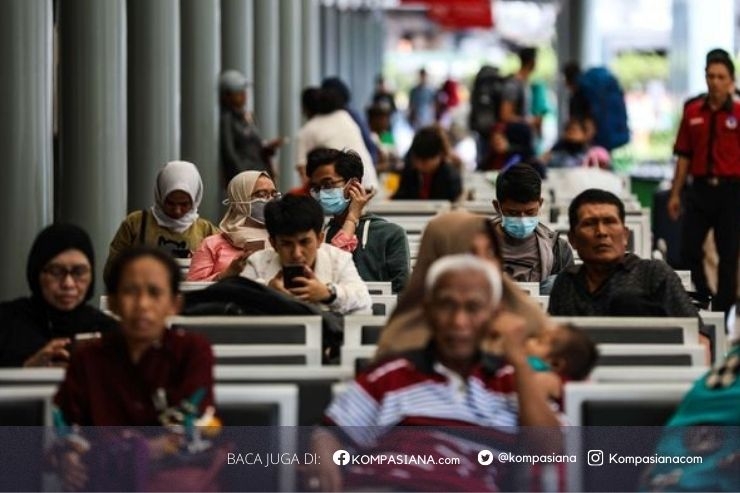Taxation holds paramount significance for the Indonesian economy, as nearly 80% of the country's state budget relies on tax revenues. Functioning as a pivotal tool within fiscal policy, tax revenues can be effectively leveraged to foster economic stability and mitigate economic inequality. Consequently, taxes play an indirect role in promoting social welfare for Indonesian citizens.
The formulation of proper tax policies can exert a substantial impact on both economic stability and the redistribution of income, particularly in addressing income disparities. A well-designed fiscal policy has the potential to augment the gross domestic product, thereby affording the government increased opportunities to enhance crucial facets necessary for sustaining economic stability and reducing economic inequality.
Addressing social inequality has become a central concern for the Indonesian government and aligns with the objectives outlined in the Sustainable Development Goals (SDGs). Data from the Central Statistics Agency reveals a commendable reduction in the inequality level, as evidenced by a decrease in the Gini ratio from 0.41 in 2015 to 0.38 in 2020. However, the fact that total tax collection in Indonesia during 2022 amounted only to a mere 9% of the country's GDP, falling short of the SDGs benchmark of 15%, is somehow disappointed. Consequently, the Indonesian government must explore alternative avenues for tax collection. This brings forth a key question: How should tax policy be formulated to effectively reduce economic inequality in Indonesia?
One potential approach worth considering is the reintroduction of taxation on dividend income. The taxation of dividends has undergone regulatory revisions, where under the previous framework, dividends whose received by individuals were subject to a final income tax rate of 10%, while domestic entities were subject to an income tax rate of 15% under Income Tax Article 23. However, with the enactment of the Job Creation Law in 2020, dividends income became exempt from income tax as long as certain reinvestment and reporting requirements were met. This policy aimed to stimulate public investment desire amid the pandemic at that time.
There are at least two reasons why re-taxation of dividend income merits consideration. Firstly, the "tax exemption" on dividend income might not have significant impact on individuals' inclination to invest in Indonesia as a whole. Within the stock market, the phenomenon known as the 'Dividend Trap' emerges, illustrating a notable decline in stock prices following dividend payments. This phenomenon is actively avoided by retail investors, who tend to retain shares only until the Cumulative Date and sell them prior to the Ex Date to mitigate associated risks. Thus, it can be inferred that the "tax exemption" on dividend income does not substantially influence the investment behavior of the majority of Indonesian investors, who are more sensitive to stock price fluctuations rather than dividend income incentives.
Secondly, the validation process to ensure reinvestment of received dividends adds complexity. As per the provisions outlined in PMK-18/PMK.03/2021, dividend recipients are required to report the investment realization of their dividends within a tax year. However, such a mechanism imposes additional administrative burdens on investors. Moreover, not all forms of investment can be validated automatically through an information system, thereby necessitating tax officials to expend significant time and effort in verifying the accuracy of investment realizations.
Additionally, the mechanism for dividend taxation should be revised. Prior to the enactment of the Job Creation Law, income tax on dividends was imposed based on the entire gross amount received by individuals or entities. To introduce fairness and stimulate investment interest among retail investors, the government could adopt a dividend allowance scheme, similar to the approach implemented by the UK government. The dividend allowance denotes a predetermined threshold used to determine the taxable basis for dividend income. For instance, if Mr. A receives dividends totaling IDR 100 million from PT A, and the government sets an individual dividend allowance of IDR 30 million, the taxable basis for Mr. A's dividend income would be IDR 70 million (IDR 100 million - IDR 30 million). Conversely, if Mr. A receives dividends amounting to only IDR 20 million, no income tax would be imposed on his dividend income. In determining the dividend allowance amount, the government can conduct comprehensive research, taking into account factors such as the amount of PTKP (tax allowance), the percentage of investments made by Indonesian citizens, and other pertinent considerations. This mechanism can be applied to all dividends received by individuals or entities from their respective investments, coupled with a withholding mechanism for the deduction or collection of income tax on dividends.
Re-imposing taxation on dividends constitutes a pivotal step in supporting the reduction of social inequality within Indonesian society. Dividend income, predominantly acquired by the middle and upper classes, should be subject to higher tax rates, aligning with the principle of progressiveness that underpins the imposition of income tax. This principle posits that individuals or entities with higher incomes should bear a greater tax burden. Furthermore, through the taxation of dividends, the government has an opportunity to conduct comprehensive profiling of high net worth individuals, potentially uncovering additional tax revenue streams. Consequently, dividends taxation can bolster the government's efforts in bolstering economic stability by augmenting revenues and addressing the prevailing issue of economic inequality in Indonesia.
Baca konten-konten menarik Kompasiana langsung dari smartphone kamu. Follow channel WhatsApp Kompasiana sekarang di sini: https://whatsapp.com/channel/0029VaYjYaL4Spk7WflFYJ2H







